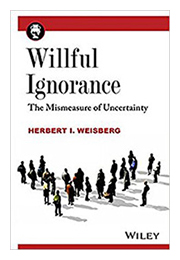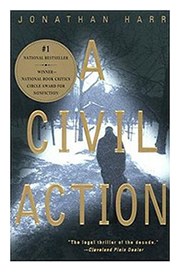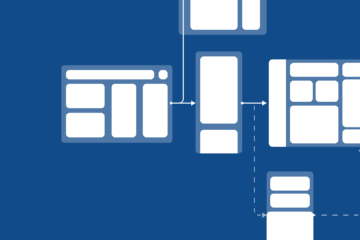I sincerely wish I could avoid typing the following: it is July 2017, which means it is time again for my annual book recommendations, as well as a swing in the hammock with a watermelon mojito (no regrets there).
Seriously? I’m going to hire a search and rescue team to find my life and bring it back to me (the edited version, of course), because I have no idea where it has zoomed off to! I know I was just celebrating my 21st birthday a few moments ago… denial is more than a river in Egypt (or so I’m told).
Here is some of what I’ve been reading. I think you’ll enjoy these titles, too.
I know: you’re probably wondering why this book is on the list. Although Ron Chernow’s Alexander Hamilton is all the rage these days (and for good reason – I read the book and loved it; helped to pass the time waiting for the next millennium to land tickets to the Broadway show), there is a wealth of other great books about the history of our country, including a special-interest subset recounting the lives and work of champions of universal healthcare for U.S. citizens. Until I read David McCullough’s book, I thought Lyndon Johnson had been the original promoter and architect of the Medicare program: I had not fully understood the huge role that Truman played.
Additionally, Truman’s famous defeat of Dewey in the 1948 election was extraordinarily fascinating in its demonstration of how pollsters can get it so wrong (yes, history repeats itself). The significant political repercussions highlighted the pitfalls of survey samples and results, and the need for rigor in this type of work.
 Willful Ignorance – The Mismeasure of Uncertainty
Willful Ignorance – The Mismeasure of Uncertainty
The author, Causalytics founder Herbert I. Weisberg, Ph.D., weaves engaging stories about important thinkers, and how the problems they worked to solve using statistical methods helped propel scientific research. But this book is more than just a historical view of these efforts: it’s also a cautionary tale about the mountains of simplified studies and statistics that result in frequent reversals of scientific findings and recommendations.
As the title suggests, the fallacy of regarding probability as the full measure of our uncertainty is contributing to an oncoming crisis. Weisberg says, about clinical research and care, that our current methodological orthodoxy plays a major role in deepening the division between scientific researchers and clinical practitioners. Prior to the Industrial Age, research and practice were better integrated. Investigation was generally more directly driven by practical problems, and conducted by those directly involved in solving them. But then as scientific research became more specialized and professionalized, the perspectives of researchers and clinicians began to diverge. In particular, their respective relationships to data and knowledge have resembled each other less and less.
If you work with statistical methods, especially probabilities, or you have to understand them well enough to explain them (and their limitations), then this is a really top-notch book that you should seriously consider taking the time to read.
 The Big Book of Dashboards: Visualizing Your Data Using Real-World Business Scenarios
The Big Book of Dashboards: Visualizing Your Data Using Real-World Business Scenarios
I state my disclaimer right up front: my HealthDataViz team and I contributed to this book. That is of course what makes this title a particularly great addition to your health|health care reference shelf (no brag; just fact)!
Each chapter follows a standard layout that I like a lot. Each begins with a summary of the big picture that the dashboard addresses, followed by the specific metrics displayed and related scenarios illustrated. “How People Use This Dashboard” is next, supported by different visuals on the dashboard as examples. A “Why This Works” section rounds out the chapter.
The authors also include a data visualization best practices summary by displaying what NOT to do – very useful! No red, yellow, green pies, donuts, bubbles, or word clouds, please!
If you have never read this book, this is the summer to do so. I absolutely love it, and any time the movie based on it is on television, I drop everything and watch (just ask my husband, Bret – there is no dissuading me). A Civil Action is the true story of the quest by a somewhat idealistic young lawyer to collect damages from two corporate giants, Beatrice Foods and W.R. Grace, for allegedly polluting the water in Woburn, Massachusetts, a Boston suburb, with carcinogens. The case considers a cluster of leukemia victims in Woburn (the disease claimed the lives of at least six children), and the tremendous challenge of reconciling a preponderance of experiential or circumstantial evidence with scientific results. How do you prove causation in the courtroom? Is it possible or even correct to try and do so?
I love, love, love this book and am certain it will find its way into my summer bag yet again this year – a perfect read for a few hours in the hammock.
Coming Soon!! Tableau for Health and Healthcare, v. 3
Many of you have been asking, and the answer is a resounding YES! The HealthDataViz team has been hard at work updating our Tableau manual (a very special thanks to Janet, Ann, Marnie, Dan, Jim, Peter, and our very own GrammarLady, Anne). Data sources and examples have been updated to reflect what we’ve learned while training folks to successfully use Tableau, and there are some new tips and tricks. It’s due out in the coming weeks, so stay tuned for our announcement.
Finally, let me take a moment to thank all my faithful subscribers and our clients. You are the best and biggest reason for what we do, and we are deeply grateful for your support. We look forward to presenting engaging new ideas and fresh approaches, and collaborating on innovative projects with you.





0 Comments